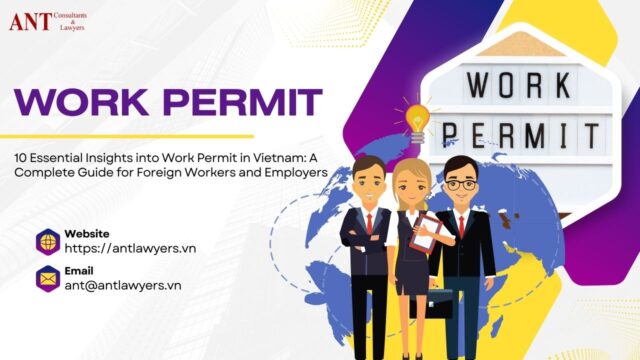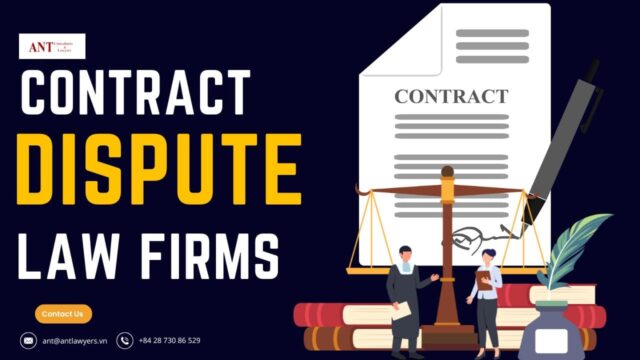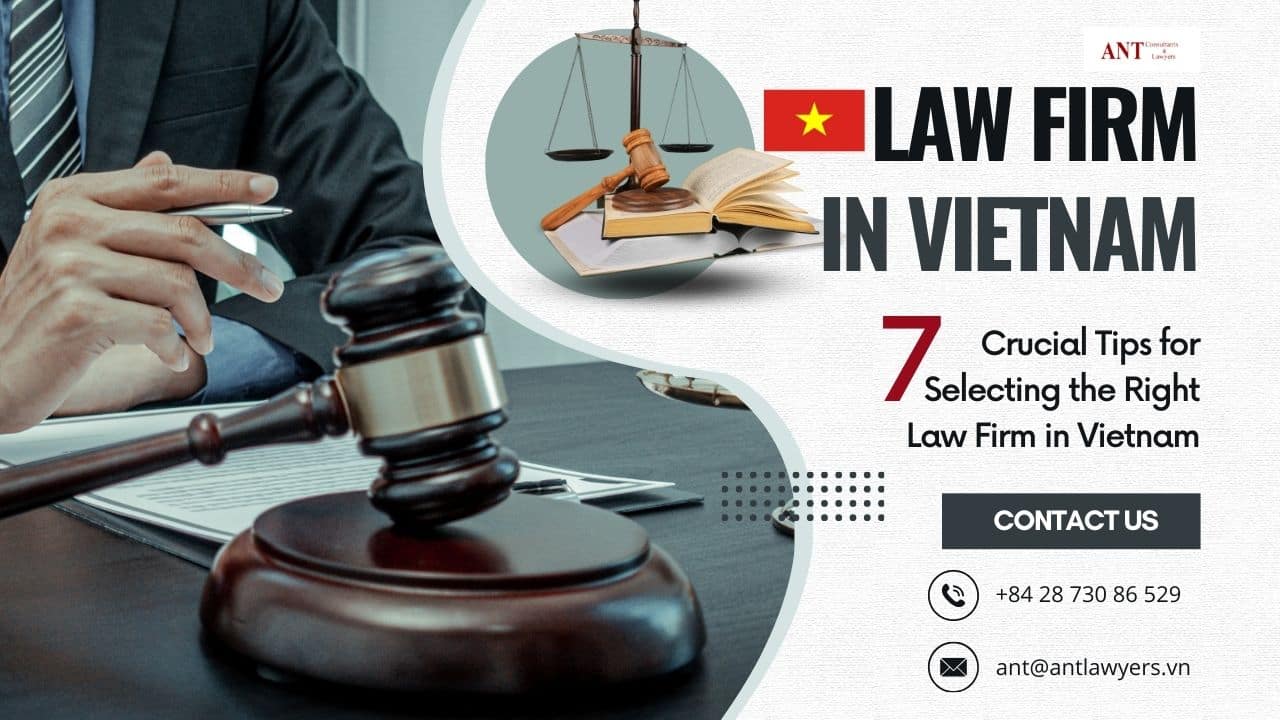Securing a work permit in Vietnam is a crucial process for foreign workers and employers aiming to navigate the complexities of the country’s legal framework. Whether you are a foreign employee seeking opportunities in Vietnam or an employer looking to sponsor a skilled workforce, understanding the intricacies of work permits can save time, effort, and legal headaches. In here, we discuss the requirements, procedures, challenges, and strategies associated with obtaining a work permit in Vietnam.
 Why Work Permits in Vietnam Are Essential
Why Work Permits in Vietnam Are Essential
A work permit in Vietnam is not just a legal requirement, it is a vital document that ensures compliance with Vietnam’s labor laws and protects both the employer and the employee. For employees, it is the key to lawful employment, while for employers, it demonstrates their commitment to adhering to local regulations and fostering a legitimate work environment.
The Vietnamese government has stringent requirements for issuing work permits. This ensures that foreign workers bring specialized skills that benefit the local economy, while also protecting job opportunities for domestic workers. For foreign employees and employers alike, understanding these requirements is essential to successfully obtaining a work permit in Vietnam.
Who Needs a Work Permit in Vietnam?
The first step in understanding work permits in Vietnam is determining who needs one.
Foreign Employees
Foreigners working in Vietnam for more than three months are generally required to obtain a work permit. This applies to individuals in various roles, including:
– Executives and managers
– Technical experts
– Skilled workers in specialized fields
Exemptions
Certain categories of foreign workers are exempt from requiring a work permit in Vietnam. These include:
– Individuals providing services under contracts of less than three months.
– Foreigners married to Vietnamese citizens who reside in Vietnam.
– Students interning in Vietnam.
– Members of foreign non-governmental organizations (NGOs) operating in Vietnam.
It’s critical to confirm whether an exemption applies, as this can significantly streamline the process.
Work Permit Requirements in Vietnam
The process for obtaining a work permit in Vietnam involves meeting specific eligibility criteria and preparing a comprehensive application.
Key Requirements
- Educational Background: Most work permits require proof of relevant qualifications, such as university degrees or professional certifications.
- Experience: At least three years of work experience in the relevant field is often required, especially for technical or managerial roles.
- Health Certificate: A medical examination from a licensed hospital in Vietnam or abroad is mandatory.
- Clean Criminal Record: Applicants must provide a police clearance certificate from their home country and Vietnam (if residing in the country for six months or more).
- Employer Documentation: Employers must prove that the role cannot be filled by a Vietnamese worker and submit a request for hiring foreign employees.
Failing to meet any of these requirements can result in rejection, making meticulous preparation essential.
Steps to Apply for a Work Permit in Vietnam
The application process for a work permit in Vietnam involves multiple steps, often requiring coordination between the employer and the employee.
Step 1: Pre-Approval for Hiring Foreign Workers
Employers must submit a request to the Department of Labor, Invalids, and Social Affairs (DOLISA) justifying the need for hiring a foreign worker.
Step 2: Document Preparation
The employee must gather the necessary documents, including:
– Passport (notarized copy)
– Degree and certificates (translated and notarized)
– Work experience confirmation
– Health check report
Step 3: Submission and Processing
The employer submits the complete application to DOLISA. Processing usually takes 5–15 working days.
Step 4: Work Permit Issuance
Once approved, the work permit is issued, allowing the foreign employee to work legally in Vietnam.
Costs and Duration of Work Permits in Vietnam
The cost of obtaining a work permit in Vietnam varies depending on the location and the complexity of the application.
Validity
A work permit in Vietnam is valid for up to two years and can be renewed. However, the renewal process must begin before the permit expires to avoid penalties or employment gaps.
Common Challenges in Obtaining a Work Permit in Vietnam
Despite clear guidelines, obtaining a work permit in Vietnam can be challenging due to several factors:
– Documentation Issues: Missing or improperly notarized documents are common reasons for delays.
– Language Barriers: All documents must be translated into Vietnamese, adding complexity.
– Employer Inexperience: Companies unfamiliar with the process may inadvertently cause delays or rejections.
– Changing Regulations: Vietnam’s work permit laws are subject to updates, which can create confusion for both employers and employees.
These challenges underscore the importance of meticulous preparation and professional guidance.
Why Work Permit in Vietnam Requires Legal Expertise
Navigating the work permit process in Vietnam without legal expertise can be overwhelming. Here’s why hiring a lawyer can make a significant difference:
Efficiency
Lawyers streamline the process by ensuring all documents are in order, preventing delays and rejections.
Compliance
They ensure the employer and employee adhere to Vietnam’s labor and immigration laws, avoiding penalties or legal complications.
Problem Resolution
Legal experts can address issues such as incomplete documentation, appeals for rejected applications, or transferring work permits between employers.
For both employees and employers, engaging a lawyer with expertise in work permits in Vietnam is an investment in peace of mind and efficiency.
Employer Responsibilities for Work Permits in Vietnam
Employers play a crucial role in securing work permits for their foreign employees. Their responsibilities include:
– Submitting pre-approval applications to DOLISA.
– Covering the costs associated with the work permit.
– Ensuring compliance with labor laws.
– Providing necessary documentation and justifications for hiring foreign workers.
Failing to fulfill these responsibilities can result in fines, legal disputes, or reputational damage.
What Happens if You Work Without a Permit in Vietnam?
Working without a valid work permit in Vietnam can lead to severe consequences:
– For Employees: Fines, deportation, and a ban on re-entering Vietnam.
– For Employers: Heavy penalties for employing undocumented workers.
To avoid these risks, it is imperative to ensure that all work permits are in place before commencing employment.
Transfer and Renewal of Work Permits
Transfer
When switching employers, a new work permit application is often required. Lawyers can assist in transferring the permit seamlessly.
Renewal
Work permits must be renewed before expiration. The renewal process is similar to the initial application but may require updated documents.
The Importance of Understanding Work Permits in Vietnam
Obtaining a work permit in Vietnam is a critical step for foreign workers and employers aiming to operate legally and efficiently. The process, though complex, can be managed effectively with proper knowledge, preparation, and legal assistance. By understanding the requirements, challenges, and responsibilities, both employees and employers can ensure compliance and avoid unnecessary complications.
Whether you are a foreign worker seeking opportunities or an employer looking to sponsor international talent, navigating the process with the help of legal experts can save time, reduce risks, and ultimately ensure success.
In Vietnam, where regulations are continuously evolving, staying informed and proactive is the key to securing and maintaining a work permit. For more detailed assistance, consulting professionals with expertise in work permits in Vietnam is highly recommended.
Future Trends and Advice for Work Permit in Vietnam
Evolving Policies and Digitalization
Vietnam’s government is continuously updating its labor and immigration laws to align with global trends and domestic economic needs. In recent years, there has been a move toward:
– Stricter Qualifications: As Vietnam develops its domestic workforce, expect heightened scrutiny on foreign worker applications to ensure that roles filled by expatriates truly require expertise unavailable locally.
– Digital Application Processes: Authorities are digitizing administrative processes, including work permit applications. Familiarity with online platforms will become increasingly essential for applicants and employers.
Demand for High-Skilled Workers
Industries such as technology, renewable energy, and education are growing rapidly in Vietnam. Foreign professionals with expertise in these sectors are likely to see increased demand. Understanding sector-specific work permit requirements can give applicants a competitive edge.
Practical Tips for Success
Navigating the work permit process can be challenging, but the following tips can help ensure success:
- Plan Early: Begin preparing documents as soon as a job offer is confirmed, as obtaining work permits in Vietnam can take weeks or months.
- Stay Updated on Regulations: Laws and processes change frequently. Regularly consult reliable sources or legal professionals to stay informed.
- Leverage Expert Guidance: Collaborate with lawyers or consultants who specialize in work permits to avoid common pitfalls and expedite the process.
- Maintain Compliance: Keep all employment documents, work permits, and visas up to date to avoid fines or disruptions to employment.
Vietnam offers significant opportunities for foreign workers and businesses, but these opportunities come with responsibilities. By staying informed, proactive, and compliant, foreign employees and employers can navigate the complexities of work permits in Vietnam with confidence. Remember, the key to a successful application is preparation, compliance, and expert assistance.
About ANT Lawyers, a Law Firm in Vietnam
We help clients overcome cultural barriers and achieve their strategic and financial outcomes, while ensuring the best interest rate protection, risk mitigation and regulatory compliance. ANT lawyers has lawyers in Ho Chi Minh city, Hanoi, and Danang, and will help customers in doing business in Vietnam.
Source: https://antlawyers.vn/update/work-permit-in-vietnam-10-insights.html







